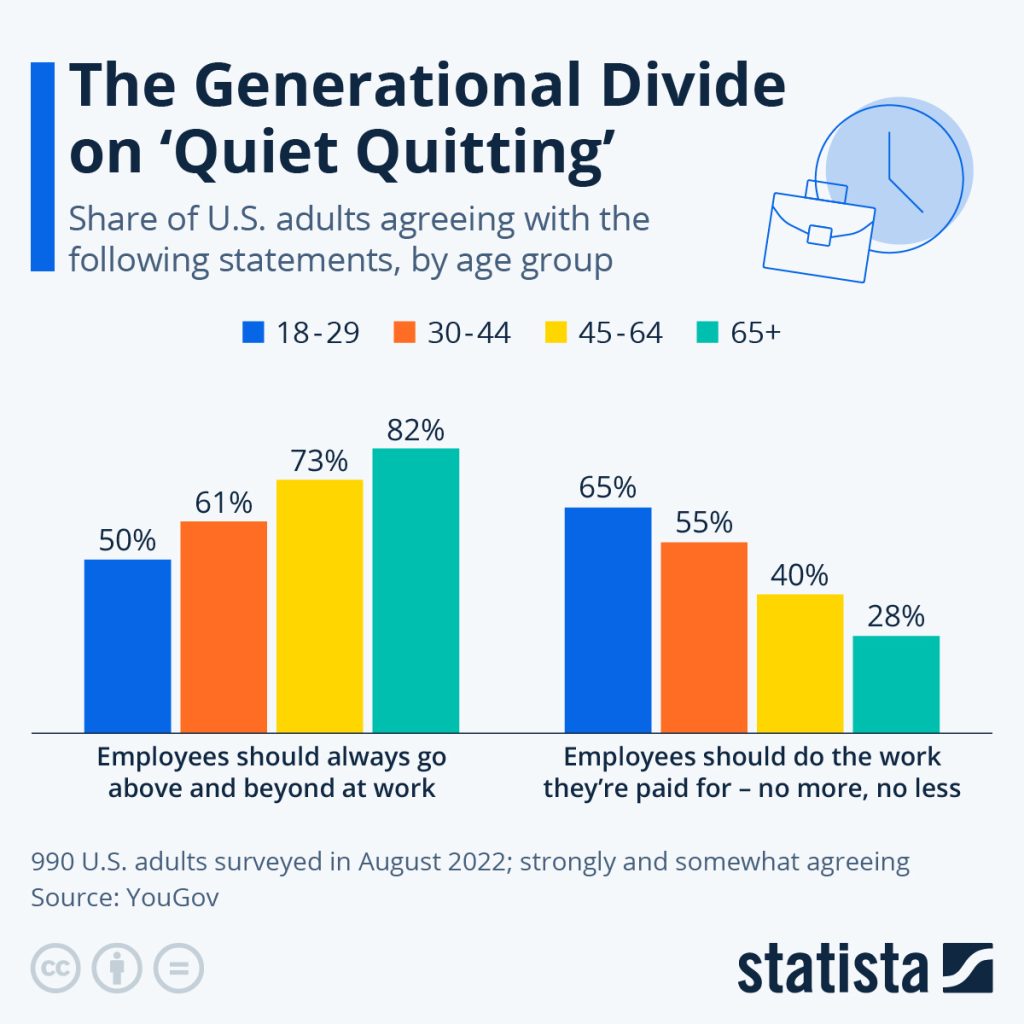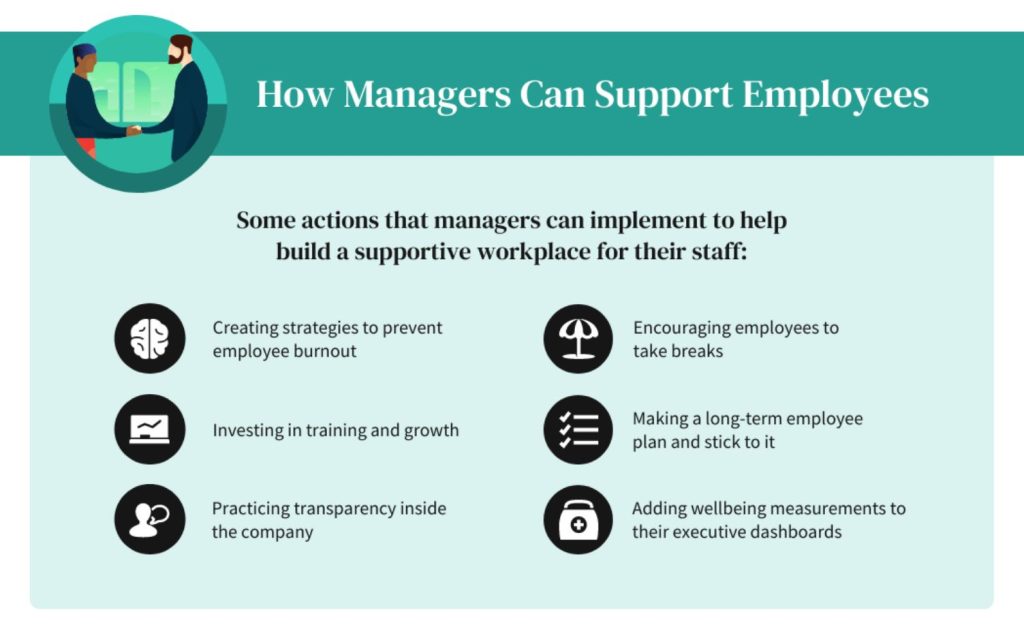
How do we respond to the Quiet Quitting Movement?
“For quiet quitters, putting in extra effort at work is not a smart way to realize potential, experience personal satisfaction or meet other important needs.”
Barry Rosen for Forbes
The term “quiet quitting” was popularised on TikTok, to describe “quitting the idea of going above and beyond” for your job. To detach yourself from the mindset that work is your life, and that your value is defined by your labour. As one TikToker put it, “the art of not taking work too seriously”.
Its easy to frame this as laziness among a younger generation, but it’s an alarming symptom of a measurable decline in employee satisfaction, workplace engagement and mental wellbeing. The impacts of widespread quiet quitting may range anywhere from a deterioration of workplace culture to losses in productivity. But why are people quiet quitting? What are the factors contributing to this movement? And how can we respond to the quiet quitters?
An Antidote to “Hustle Culture”
In my mind, there are two things which drive the movement of quiet quitting.
Part of it is a generational change. Concepts like workplace satisfaction and work-life balance have become more relevant to how we negotiate our working life. Especially younger employees have increasingly shifting ideas on what constitutes a good life. And many of us don’t believe that climbing the corporate ladder is key to happiness, nor that working harder automatically guarantees success or wealth.

The other big contributor is the state of the world at large. Not only are we moving towards a recession, but wealth is more unequally distributed than ever. Wages have stagnated while cost of living is on the rise. And to top things off, we are coming out of almost two years of lockdowns, on the tail end of a global pandemic. It’s a bleak picture if you are in the early years of your working life.
According to Gallup’s 2022 Global Workplace report, 44% of surveyed employees experienced daily stress, which is an all-time high. The World Economic Forum labelled “youth disillusionment” as one of its immediate risks. Other surveys also show increases in burnout, declines in employee engagement and mental wellbeing. The impacts of the pandemic are also still clearly felt, having contributed to social isolation, and deteriorating mental health
Other common threads are that employees feel undervalued and aren’t being given opportunities for growth, nor adequate feedback or support. No wonder that so many of them feel disillusioned and begin to disengage from their jobs.
A Symptom of Bad Management
The natural question to follow, is how do we even respond to this?
While many of the factors that contribute to quiet quitting are large-scale problems, they can also be a symptom of bad management. As mentioned above, renegotiating boundaries between work and the private life has become an accelerated challenge during the pandemic. Especially remote working has created a demand for 24-hour availability, or the illusion that employees are always reachable. How do you draw and reinforce a line between working hours and private time?

There are many writers online that have suggestions on how to improve management styles, and how to treat employees in ways that will improve their engagement and satisfaction. One of the common suggestions, is to change how you provide constructive feedback, support, and praise for your employees. To make them feel appreciated and let them see the impacts of their work.
This may also mean re-evaluating how to measure performance – in achievements and quality of work, rather than hours worked or meeting attendance. Another suggestion is to cut down on unnecessary meetings, and to set clear expectations about what you expect.
It might be easy to shrug all of this off, or to simply fire those you perceive as quiet quitters. But considering the number of quiet quitters – nearly 50% of the US workforce according to Gallup– and those considering quitting their jobs, it is worth trying to combat the movement. Whether through evaluating your style of management, to investigating what you can do to lessen the strain on your employees, there is a value in trying to re-engage your employees.
As a culture we need to re-evaluate how we frame work – maybe less in terms of a “dream job” and the one thing in life to truly fulfil you, and more as something that should pay the bills, be enjoyable and not cause you additional stress or anxieties.
Sources
Quiet quitting: why doing the bare minimum at work has gone global | The Guardian
State of the Global Workplace Report – Gallup
What Is ‘Quiet Quitting’ And How Should Leaders Respond?
What is quiet quitting and why is it happening | World Economic Forum
Why ‘Quiet Quitting’ Is A Loud Call For A Better Social Contract At Work

